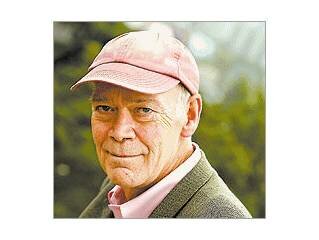See, it's like the bus is rising health care costs. And we're all on it.
Here's a local angle on the health care reform debate. This afternoon, I was minding my own business when a chat window popped up. My friend, let's call him Mr. Doe, said, "Wanna hear a funny story?":I was watching this and eating lunch at my desk --> Obama healthcare speech <--
when I got a call from the "pre-collections" team at [local hospital] because my insurance company took 6 months to decide that they would not cover the expense associated with removing 6 stitches from my son's hand.
There's a visual joke here--watching me try to take notes with my broken hand [snowboard accident]. I'm waiting to get a CAT scan because my insurance will apparently pass on the full price of the procedure to me.
I couldn't even watch the rest of the Obama speech. Let me know how it turns out.
They want to give me 2 CAT scans. One for the hand and another for the wrist. I guess these two body parts are far enough apart as to require separate billable procedures.
"Did we already pass the funny part?" I wrote back....
"'Seattle--you got a lot of liberals there,'" Jonathan Raban says the man checking him in for the Nashville Tea Party Convention said. "I accepted his condolences."
Raban's Tea Party piece in The New York Review of Books is delightful reading not just for the chutzpah employed in sending an Englishman to a Tea Party, but also because Raban resists the urge to add one wingnut lump or two: his Tea Party survey explores the way all sorts of people with inflamed passions have gathered together, only to discover that the hobbyhorses that brought them don't necessarily like the close quarters.
For Raban, author of Surveillance, a libertarian lean against government intrusion into private life was calling card enough that he could chat sociably with the gamut of Tea Partyers he met: the ones who vacationed in Amalfi and Tuscany, the ones with the second home in Torquay, the red-headed, sixtyish Virginian with two special-needs adopted daughters.
Only one man went public, even in a presumably "friendly" crowd, with overt racism. A table of Tea Partyers was recounting the public's hoodwinking by the Obama campaign.
Obama was an unknown quantity when he was elected. He had no record, no experience; he was an empty suit about whom we knew nothing.
"Well," said the alpha male, producing his ace of trumps, "we knew he was black."
Later, one of Raban's fellow conventioneers would tell him that "being here has made me realize that I am a liberal conservative."
After all the invective heaped on Tea Party heads--and the attention focused on those mugging for TV coverage--it's a relief to have at least one reporter not succumb to the temptation to caricature poorly, but to do it with Rabelaisian naturalism and zest. Diminishment is what creates a Tea Party in the first place.
 Sunset on the Portland to Seattle trip
Sunset on the Portland to Seattle trip
President Obama's plug for high speed rail in the State of the Union address was followed by AP reporting, tonight, that Washington state is one of the thirteen major corridors in line to see faster service: in our case, from Seattle to Portland.
Sen. Patty Murray says we will receive $590 million, and extra Amtrak trains. Seattlepi.com say the improvements on the Seattle to Portland line will allow Amtrak trains to pass BNSF freight trains, the slowpokes that often cause delays currently. The ultimate goal is a top speed of 110 mph.
David Mamet's "Edmond" at the Balagan Theatre, directed by Paul Budraitis. Photo by Andrea Huysing.
"I wound up in Seattle because I was going to Indiana University, and I was about to graduate so I was looking into my options," Paul Budraitis said. "I was pretty much set on going to Chicago, and then a few things happened that kind of made me reconsider. And I wound up talking to somebody that was heading to Seattle, a grad student, and she sort of sold me on the place, saying at least it was worth checking out."
About a week before the opening of David Mamet's Edmond at the Balagan (through Feb. 6, tickets $12-$15), which Budraitis directed, he and I met up at Caffe Vita to chat about his history and work. Tall and solidly built, Budraitis has a calm voice but gives off a vibe of quiet intensity that was only heightened by his deferral to wait in line to get a coffee for himself, mysteriously offering only that it did "something" to him and it was probably better that he didn't have any before heading to rehearsal. This all left me imagining him a pent-up ball of over-caffeinated aggression, à la Henry Rollins, though that owes as much to a video I once saw of his solo performance as anything to do with the man himself.
Budraitis, whose family emigrated from Lithuania, moved to Seattle in 1995 and spent the next five years working in fringe theatre. His time at Annex Theatre was particularly formative, because it was where he first learned Vsevolod Meyehold's biomechanics method, which continues to inform his theatrical approach. But in 2000, he left to go to grad school in Lithuania, where he trained under the legendary director Jonas Vaitkus, who, along with Oskaras Koršunovas and Eimuntas Nekrošius, helped put Lithuania on the global theatrical map with a radical aesthetic approach developed in the crucible of Cold War repression....


Most Recent Comments